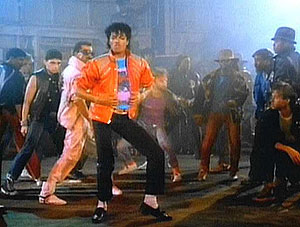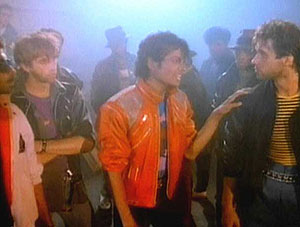| ||
| ||
|
As the second lecture in the David Schroeder Music & Culture Series, Dr. Fast’s visit to Dalhousie last week was something of a homecoming: she was a Killam post-doctoral fellow in music earlier in her studies. The author of several notable works in popular music studies – perhaps most famously 2001’s In the Houses of the Holy: Led Zeppelin and the Power of Rock Music – she used the occasion to present a new paper exploring how Michael Jackson operated as a "boundary creature": “blurring the lines between male and female, child and adult, black and white.”
Hence, her use of the word “queer” – not necessarily in a purely sexual sense, but as something that lives at the loose ends, or by the definition of David Halperin, “whatever is at odds with the normal.” Dr. Fast argues that one of Jackson’s most interesting confrontations with normalcy is musical, in his embrace and reworking of genres like heavy metal that are generally associated with masculinity and heteronormativity.
A good deal of her case study focused on the famous video for Beat It, which features two rival street gangs facing off before a didactic Jackson intervenes and leads everyone to cooperate through dance. Though obviously inspired by the film West Side Story, the dancing in that film is used to reinforce a traditional idea of masculinity. Instead, Beat It subverts its metal riffs and Eddie Van Halen guitar solo with its lyric – “advising retreat in the face of adversary,” as Dr. Fast points out – and with its dance sequence. Rather traditional rock gestures, she argues, “the dance focuses on the full-body wave, counter to the solid masculinity of hard rock.” She also showed performances of the song on-tour as Jackson’s female guitarist, Jennifer Batten, reinterpreted the solo and further complicated the metal narratives Jackson was playing with.
The David Schroeder Music & Culture Series kicked off in October with a presentation by its namesake, who retired from the Department of Music in December after almost 30 years as a faculty member. Dr. Fast, who was a student during Dr. Schroeder’s time on the faculty, opened her remarks stating: “I’m quite honoured to be doing a talk under that rubric.”
Beat ItThey told him don't you ever come around here |



